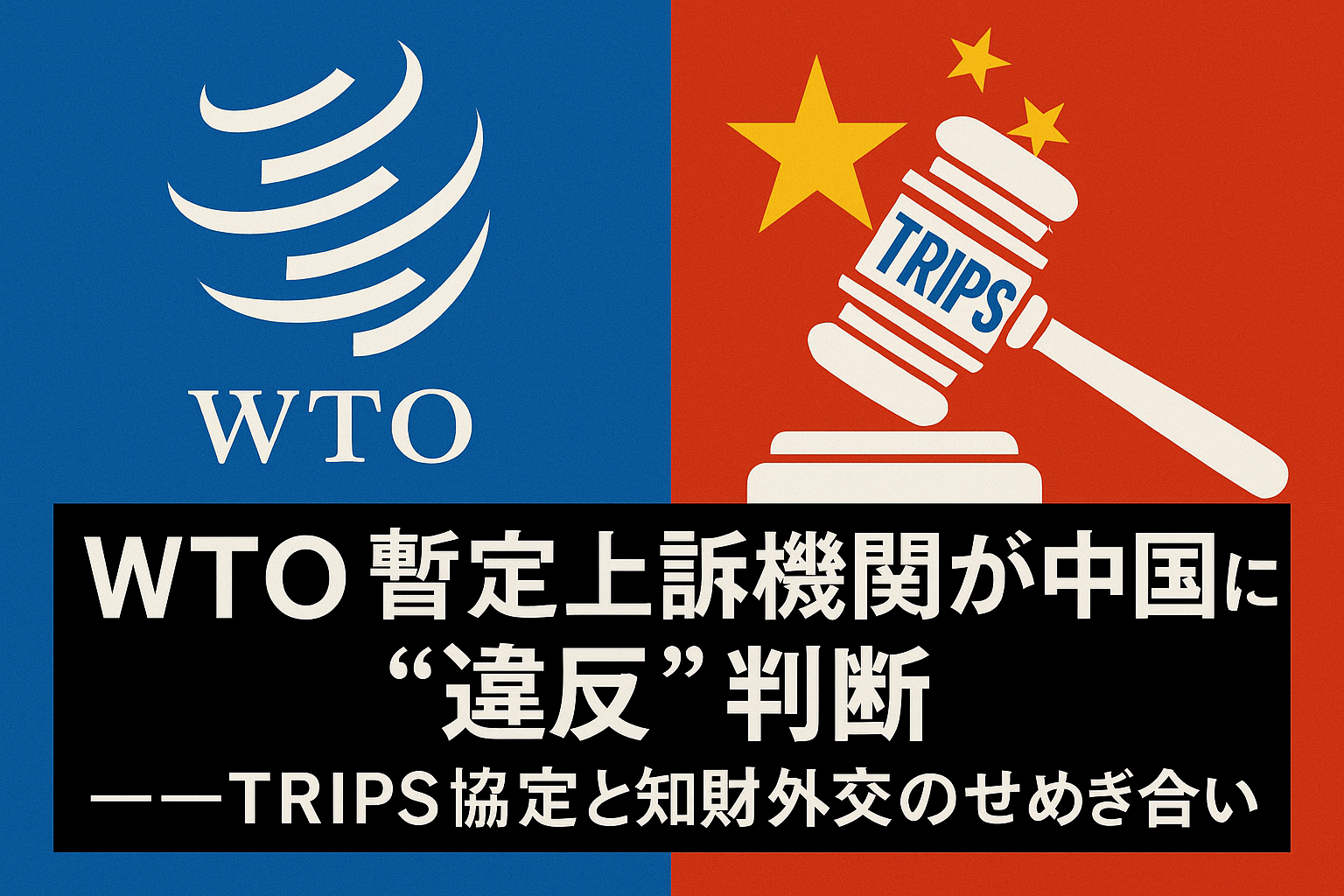The WTO’s alternative appellate body, the Multi-Party Interim Appeal Arbitration Arrangement (MPIA), has ruled that China’s anti-suit injunctions violate the TRIPS Agreement. The decision, which partially upheld the European Union’s claims, casts new light on China’s position within the international intellectual property (IP) regime. This article explores the background of the case, the significance of the ruling, and its potential implications.
What Happened? – China’s Judicial Measures Deemed TRIPS-Inconsistent
In 2022, the European Union filed a complaint with the WTO, targeting Chinese court-issued anti-suit injunctions. These orders prevented patent holders from asserting their rights outside of China, effectively granting them extraterritorial impact.
The MPIA found that these measures violated the WTO’s Agreement on Trade-Related Aspects of Intellectual Property Rights (TRIPS), and recommended that China rectify the situation within 90 days. This ruling partially overturned the WTO panel decision from April this year, which had rejected the EU’s claims.
What is the MPIA? – A Temporary Remedy Amid WTO Paralysis
The MPIA (Multi-Party Interim Appeal Arbitration Arrangement) was established as a stopgap mechanism after the WTO Appellate Body became non-functional due to U.S. opposition. Participants include the EU, China, Japan, and others, and the mechanism is expected to serve as a reliable forum for rule-based dispute arbitration.
Its ability to function without U.S. involvement and still effectively oversee and enforce international trade rules is a noteworthy development.
The Underlying Context – Transparency vs. IP Diplomacy
To protect domestic companies, China has frequently employed court measures to deter overseas patent litigation. However, these practices have hindered the legitimate exercise of IP rights by foreign companies and have sparked tensions with Western nations.
The recent ruling underscored the opacity of such judicial actions and found them inconsistent with international standards—marking a significant moment in global IP governance.
What Lies Ahead? – Policy Revisions or Retaliation?
Following the ruling, China is required to revise its measures within 90 days. However, changing domestic legal systems or court practices is no easy task. If the corrective measures fall short, the EU may consider countermeasures, such as retaliatory tariffs.
At the same time, China will need to proceed cautiously with future IP reforms to avoid undermining its international credibility.
A New Front in Multilateral IP Conflict
The MPIA’s decision is not merely a technical legal dispute—it represents a new chapter in the diplomatic battle over intellectual property. China’s role and challenges within the global IP order have once again been brought to the forefront. Transparency, fairness, and trust in the rules are reaffirmed as the core pillars of international IP governance.

